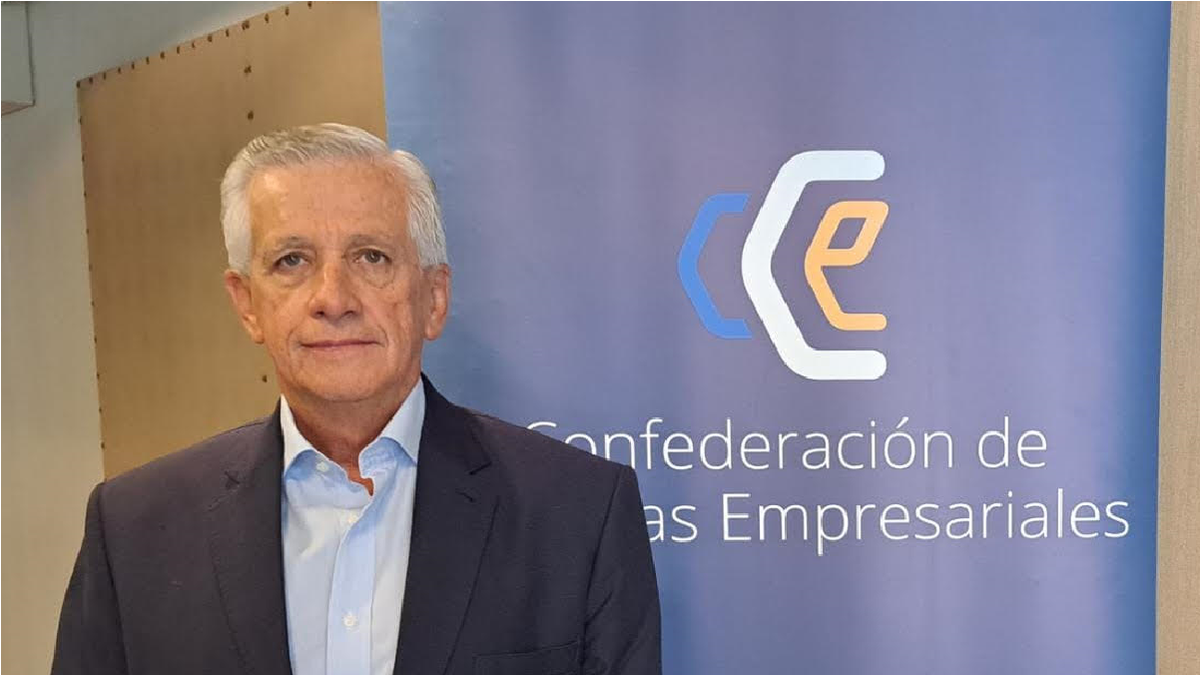– What is your reading of the package of measures announced by the government on the problem of competitiveness on the border with Argentina? Do you share the idea of the Chamber of Industries that Customs requires the “zero kilo”?
– We say no to zero kilo because we understand that for the population of the border town that is a problem. It does not seem bad to us that a person to make ends meet crosses to make an assortment on the other side. So we are not talking about zero kilograms, we are talking about increasing customs controls and inspection procedures, because there are places in any department where illegally entered products are for sale publicly, products of smugglingand people are still so happy.
So it seems to us that there is also a need to carry out inspection procedures to try to combat this problem, which is a big problem for the entire commercial sector.
– The Minister of Economy, Azucena Arbeleche, has said that businessmen have higher expectations linked to inflation than the government itself and that they adjust prices from there. What is your assessment regarding inflation and what did the minister say?
– Well, it also happens that historically Government inflation expectations are often not met. The range where inflation should move is general, then the real is above that range. So, probably the expectation of businessmen is more associated with the historical than with the projections made by a government. But, ultimately, I don’t think businessmen can be held responsible for the fact that this expectation generates higher inflation. When asked what inflation they expect, they say what they think, and what they think reflects a higher figure than the government’s.
Obviously the government has to manage several variables, for example, perhaps the low value of the dollar it helps lower inflation, but hits the productive sector. So, undoubtedly the government has to manage all the variables, and inflation is one of them, but it is not the only one, although it is very important.
– How did the sector observe the modifications to the collective bargaining law recently approved by Parliament?
– We welcome this amendment to the collective bargaining law. The measures are very positive, basically what has to do with eliminating the ultra-activity that was a very important claim of the business sector and some other things. We celebrate that this modification has been made, we simply mention that there are still some points of the complaints raised before the ILO, but that most of them were cleared with this modification.
– From the PIT-CNT it is said that this law is taking away the rights of workers, what is your response?
– The law conforms to ILO Convention 98, which is the one that regulates collective bargaining at the international level and to which Uruguay is a party and signed in a timely manner. So if there is any claim, it should be made to the ILO, because in reality what the Government has done is adjust the collective bargaining law to the observations that the ILO had made based on this agreement. We understand that it generates a equilibrium situation in collective bargaining that it did not exist with the previous version of the law and that is therefore very positive.
– Do you foresee a more conflictive situation now in the framework of the negotiation of the Salary Councils in light of this change?
— No, the conflict associated with collective bargaining, with the Wage Council round, is natural, it always occurs, it must be managed. What we do observe is a high degree of conflict for more political reasons, against the social security reformagainst educational reform, that kind of thing that has nothing to do with business activity, but ultimately affects it.
– How did the confederation take the workers’ proposal to reduce the working day?
– What we are saying is that a general measure to reduce working hours is not appropriate at this time. It can be addressed particularly in some sector, there are already sectors of activity that have previously reduced it, that is, that can be analyzed, it can be discussed, but in general we do not see it as appropriate.
– Regarding the international insertion of Uruguay, are you concerned about the delay that has occurred, for example, with the FTA with China or in the possibility of integrating the Trans-Pacific Alliance?
– International insertion is essential for the country, I think there is consensus on this, from all political sectors, some have pushed more, others less, but I think there is consensus that Uruguay as a small country and producer of raw materials needs to open markets , reduce tariffs, therefore all trade agreements are important. Unfortunately, the agreement with China has slowed down, according to the latest information, because China expects something more with the mercosurWe hope that the Trans-Pacific Agreement will advance.
About the agreement with the European UnionWe are skeptical, I’m not saying pessimistic, but this has been going on for a long time, the other day Minister Arbeleche spoke about whether it was this year or not, so hopefully there will be progress in this direction.
– Regarding the construction sector, has it slowed down since the end of the UPM 2 work?
– Undoubtedly it is a very big project, its completion is felt. However, construction activity has significant levels, especially there are a lot of investment in real estate and there is a public works plan, especially in road, very important. So there are some subsectors with more dynamism and others that are more complicated, but the level in general is not bad.
Source: Ambito




